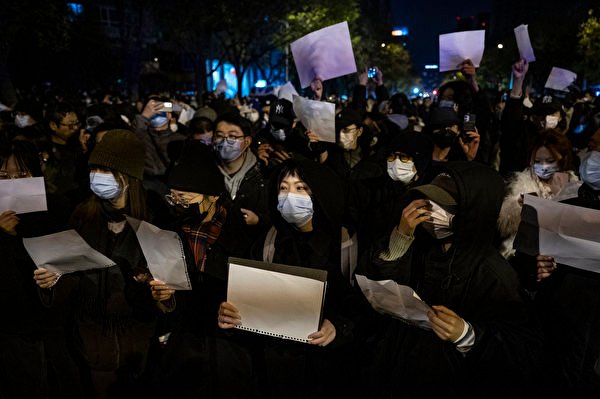27-year-old Uyghur mother-tongue singer and songwriter Yaxar Xawlati, who had been missing for over a year, has had his whereabouts revealed for the first time. According to his lawyer, he has been sentenced to three years in prison for allegedly promoting extremism in the lyrics of his songs and is currently serving his sentence at the Wusu Prison in Xinjiang.
Born in 1998 in Bole City, Bortala Mongol Autonomous Prefecture, Xinjiang Uyghur Autonomous Region, Yaxar, also known as “Uigga,” is a rapper and songwriter. He attended Xinjiang University of Finance and Economics before furthering his studies in Chengdu, Sichuan.
On November 27, 2022, he participated in a “Blank Paper Protest” in Chengdu to mourn the ten Uyghur compatriots who died in a fire in Urumqi. He sang a dirge in Uyghur, which led to a crackdown by plainclothes police. He was detained for 21 days on charges of “disturbing social order by gathering crowds” along with others and has been under surveillance since then.
On August 9, 2023, Yaxar was suddenly arrested by the police in Bole City, Xinjiang, on unspecified charges, after which he disappeared. It wasn’t until November 13, 2023, that his case was transferred to the Bole City Procuratorate for prosecution. His defense attorney was finally able to meet with him and gather information about the case.
According to Yaxar’s defense lawyer, he was accused of promoting extremism in his Uyghur-language songs, including “Wake Up,” and distributing his music videos on NetEase Cloud Music under his stage name “Uigga.” He was charged with “promoting extremism” and “unlawful possession of items promoting extremism,” and on June 20, 2024, he was sentenced to three years in prison in the first instance. He chose not to appeal, and the second instance upheld the original verdict, with his sentence ending on August 8, 2026. Currently, Yaxar is incarcerated at Wusu Prison in Xinjiang.
In response to this, overseas Uyghur youth activist Aman (pseudonym) stated in an interview with Radio Free Asia on March 27 that Yaxar had been missing for a long time, and the community had been following his whereabouts closely. It wasn’t until the recent revelation by the rights website that his charges, sentence, and prison location were exposed, more than a year and a half later. He criticized the Chinese Communist Party’s practice of making individuals “disappear” silently without announcing charges or verdicts. In this age of advanced social media, such disappearances are more easily noticed.
Aman noted that Yaxar’s music and cultural influence within and outside the Uyghur community were not significant, and he was not as well-known as Han Chinese students involved in the Blank Paper Movement. Therefore, the CCP’s arrest of him was disproportionate.
The commentator “Gongzi Shen” in the United States also commented that Yaxar was simply creating music without engaging in politics or criticizing the government. His lyrics were merely literary expressions of inner emotions, yet the Communist Party could not tolerate even this and sentenced him to three years on charges of “extremism,” demonstrating a severe level of discrimination and oppression.
Sawut Muhammed, Director of East Asia Affairs of the World Uyghur Congress, expressed in an interview that the Chinese constitution guarantees the use of mother tongues, but since 2000, the CCP has imposed “bilingual education,” prohibiting the use of the Uyghur language, violating its own laws. In the eyes of the CCP, emphasizing Uyghur language and education might be associated with ethnic pride. Singing Uyghur songs and producing materials related to the Uyghur language could be seen as threats by the CCP.
Muhammed criticized the CCP for arresting numerous Uyghur scholars, university professors, singers, poets, and writers since 2017 and detaining them in concentration camps on accusations of their artistic and literary works reflecting political realities, akin to the persecution during the Cultural Revolution. He condemned the secret trials and unlawful procedures of the CCP, asserting that their claims of governing by law are fundamentally hypocritical.

